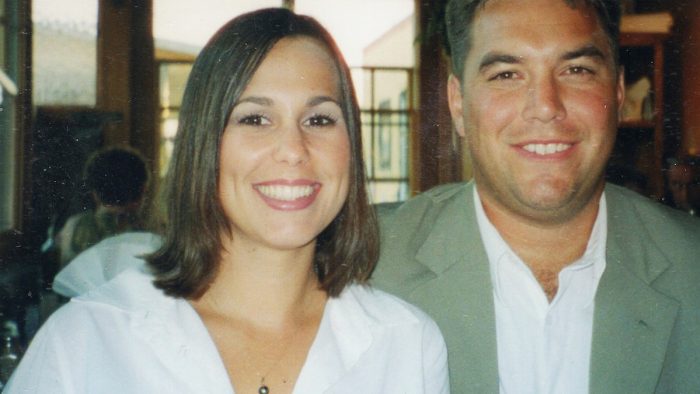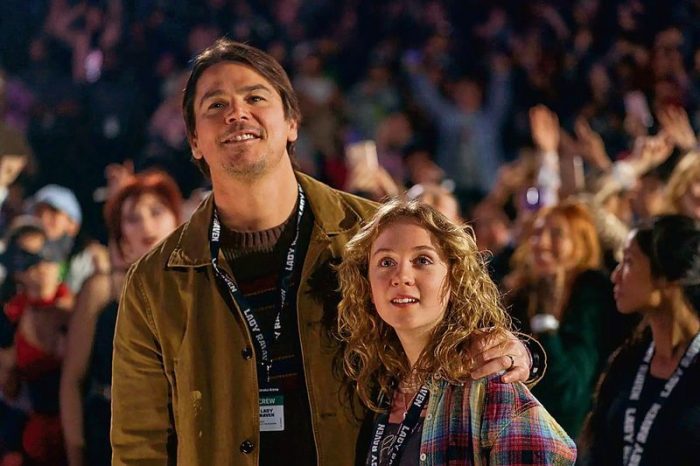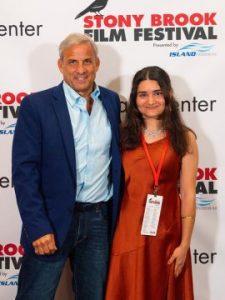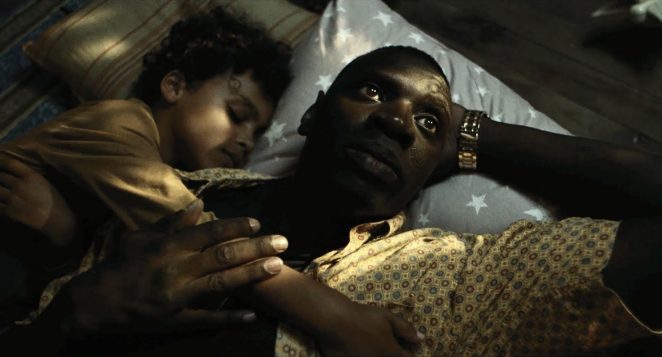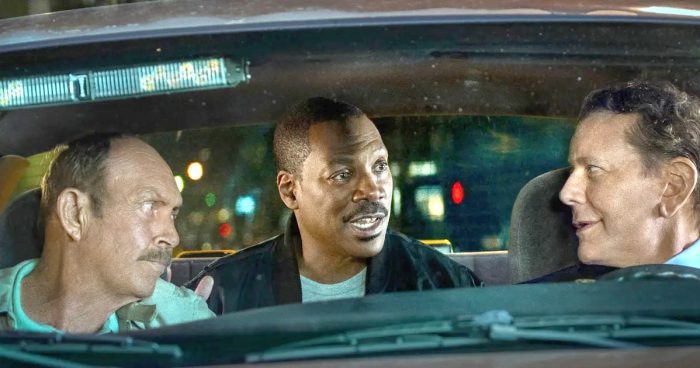Reviewed by Jeffrey Sanzel
The facts are these:
On Christmas Eve 2002, 27-year-old Laci Peterson, eight months pregnant with her first child, disappeared from her home in Modesto, California. Her husband, Scott, claimed to have last seen her at 9:30 a.m. Originally, Scott announced he was golfing but later revealed that he had gone fishing at the Berkeley Marina. When he returned home that afternoon, he found their dog, McKenzie, still leashed in the backyard. After showering and washing his clothes, Scott contacted Laci’s mother to see if Laci was there. Both Scott and Laci’s stepfather reported Laci missing. While investigating, detectives found Laci’s keys, wallet, and sunglasses in her purse and closet.
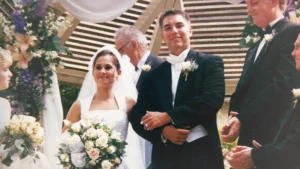
Photo courtesy of Netflix
Immediately, a massive search was underway. Initially, Laci’s in-laws defended Scott, but as the investigation continued, the police became more suspicious. On Dec. 30, Amber Frey contacted the hotline, revealing that she had been dating Scott since November as she believed he was single. She recorded their conversations over the next month. On Jan. 24, 2003, the information went public.
On April 13, the fetus remains of Conner, Laci’s unborn child, was discovered in San Francisco Bay. The following day, the remains of a woman—later identified as Laci—washed up a mile away from where Conner’s remains were found. The area was just a few miles from where Scott had been fishing.
Police arrested Scott Peterson on April 18 in La Jolla, California. In addition to knives and credit cards (and his brother’s I.D.), Scott had fifteen thousand dollars in cash. He had grown a mustache and beard and dyed his hair.
Scott’s trial began on June 1, 2004, with jury deliberations beginning on Nov. 3. On Nov. 12, Scott was found guilty of first-degree murder for Laci’s death and second-degree murder for Conner’s death. On Dec. 13, the jury recommended the death sentence, which a judge enacted on March 16. After years of appeals and accusations of an unfair trial (2012 to 2015), the death sentence was overturned on Aug. 24, 2020. He was resentenced on Dec. 8, 2021, to life in prison without the possibility of parole.
On Dec. 20, 2023, Scott Peterson’s request for a new trial was denied, and in January 2024, the Los Angeles Innocence Project began its representation of Scott Peterson, claiming that he was innocent.
Since 2002, millions of words have covered the tragic death of Laci Peterson. Thousands of articles and hours of media coverage. The Perfect Husband: The Laci Peterson Story aired on USA Network in 2004. In 2005, CBS broadcast the movie Amber Frey: Witness for the Prosecution.
The case featured on The E! True Hollywood Story, True Crime with Aphrodite Jones, Murder Made Me Famous, Crime Junkie Podcast, The Laci Peterson Story: A Dateline Investigation, Snapped, Truth and Lies: The Murder of Laci Peterson, How It Really Happened, 48 Hours, 20/20, etc. A&E produced a six-part series, The Murder of Laci Peterson (2017).
Netflix now presents American Murder: Laci Peterson. Directed by Skye Borgman (Girl in the Picture, Abducted in Plain Sight), the three-part documentary offers little new information. It mostly focuses on interviews intercut with archival footage and blurry, slow-motion B-roll recreations.
Part 1: “What Do You Mean, Missing?” highlights the first six days and establishes the Petersons as the “perfect couple.” Part 2: “I Wasn’t a Mistress” follows Amber Frey, Scott’s girlfriend, as she aids the police by taping their conversations. Part 3: “Nothing Can Change the Truth” takes the story from arrest through trial and conviction.
There is no question that this is a heartbreaking story. Laci’s disappearance and murder was terrible in every respect. However, the point of revisiting the murder is to shed new light and a new perspective. For the most part, American Murder fails to do this.
Throughout the two-and-a-half hours, the filmmakers fail to address why this particular case grabbed the country’s attention from the first moment. It acknowledges that Scott Peterson was tried on a great deal of circumstantial evidence (no DNA, no witnesses, no definitive weapon) but goes no further, emphasizing his disturbing behavior and questionable personality. It almost celebrates the mob mentality at the announcement of the verdict. It also never addresses the Innocence Project taking up his case, suggesting that Laci was murdered by the burglars of the neighbor’s house. In short, the documentary leans into ominous chords, peripatetic cuts, and eerie images.
For the most part, the interviews add little insight. The detectives revisit the same material and perspectives. Journalist Gloria Gomez speaks of the media frenzy but takes no responsibility for being part of that circus. There is an uncomfortable interview with two of the jurors that offers little perspective.
The one powerful throughline is Laci’s mother, Sharon Rocha. While reliving this is painful, she maintains dignity and clarity. She divides her life between before Laci and after Laci and knows that this changed everybody’s lives. One of the last things she states is, “You don’t get over it; you just get through it.” Her interview is the most valuable part of the documentary.
On Aug. 20, Peacock presents Face to Face with Scott Peterson, featuring his first interview in decades. Undoubtedly, this will be a different perspective, emphasizing alternate theories.
Stepping back from pure objectivity, Scott Peterson was a liar, a cheat, a narcissist, and most likely murdered his wife, Laci, a kind, gentle person. Like any victim of a violent crime, her story deserves and needs to be told—but always with integrity, sensitivity, and raw honesty. Unfortunately, American Murder does not rise to this standard.
The three-part documentary is currently streaming on Netflix.

